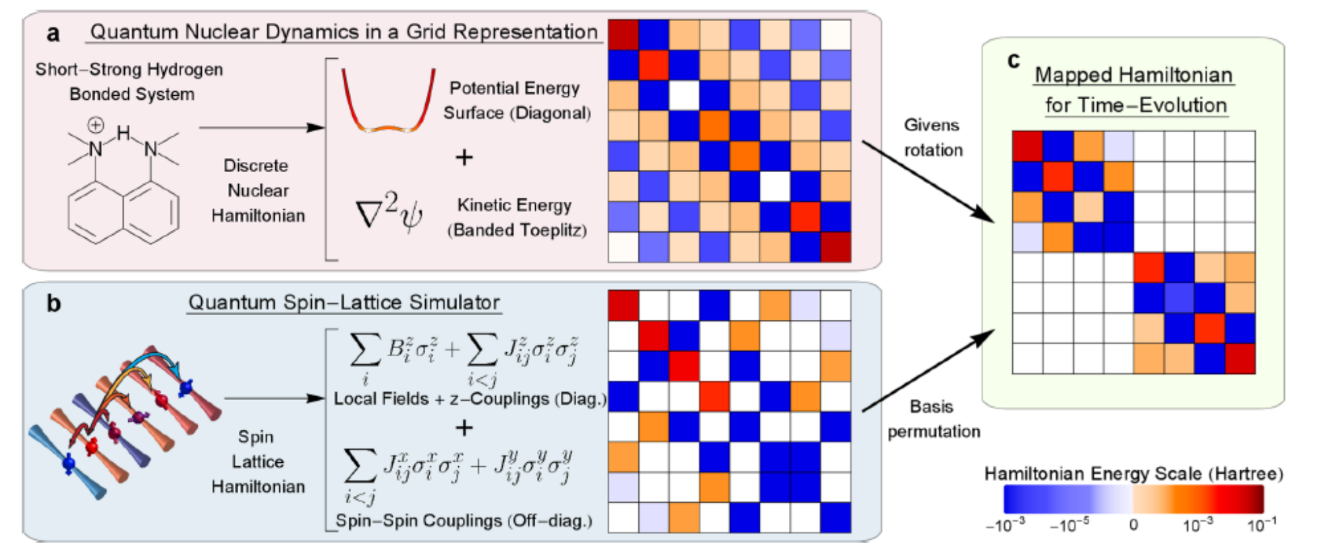This week, two researchers who work together on applying quantum simulators to tackle inherently complex problems in chemical dynamics, have each been recognized for their innovative work in this area. Professors Phil Richerme and Srini Iyengar have been working together (and also with Amr Sabry of Computer Science and Jeremy Smith of Chemistry) for some time to bring the power of quantum simulation and computation to problems in quantum chemistry that are beyond the capacity of current digital computers.
Phil Richerme, Assoc. Prof. of Physics, was announced as one of this year’s group of Experimental Physics Investigators by the Gordon and Betty Moore Foundation. Only 19 researchers from across the country and many subfields of study have received this recognition (https://news.iu.edu/live/news/37748-125-million-grant-to-help-iu-researcher-advance). Prof. Richerme will receive a five-year grant of $1.25M to apply his ion-trap quantum simulators to chemical dynamical problems of increasing complexity. This grant will also facilitate, for the first time, the development of custom-designed ion traps for specific chemical problems.
Srinivasan Iyengar, Prof. of Chemistry, was recently granted a prestigious “creativity extension” to his single-investigator NSF grant. He is the only theoretical chemist in the country to receive such recognition in the last five years. This recognition from the NSF is designed to “offer the most creative investigators an extended opportunity to attack adventurous, ‘high-risk’ opportunities in the same general research area, but not necessarily covered by the original/current award.” In this case, the award recognized “outstanding progress through papers on at least three topics” as well as for Prof. Iyengar’s unique outreach activities through such means as his recent paper on “Quantum Computing with Dartboards”, which was co-authored by high-school student Ishaan Ganti. (https://iyengar.lab.indiana.edu/wp-content/uploads/2023/09/QC-Dartboard.pdf )


